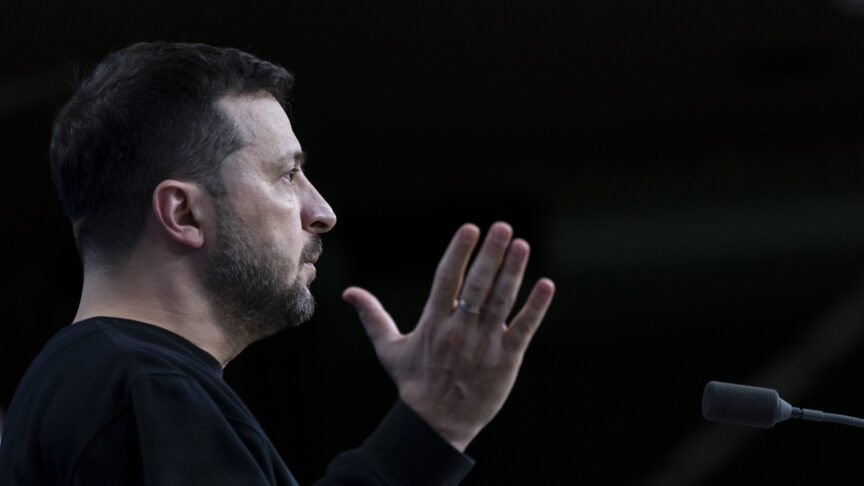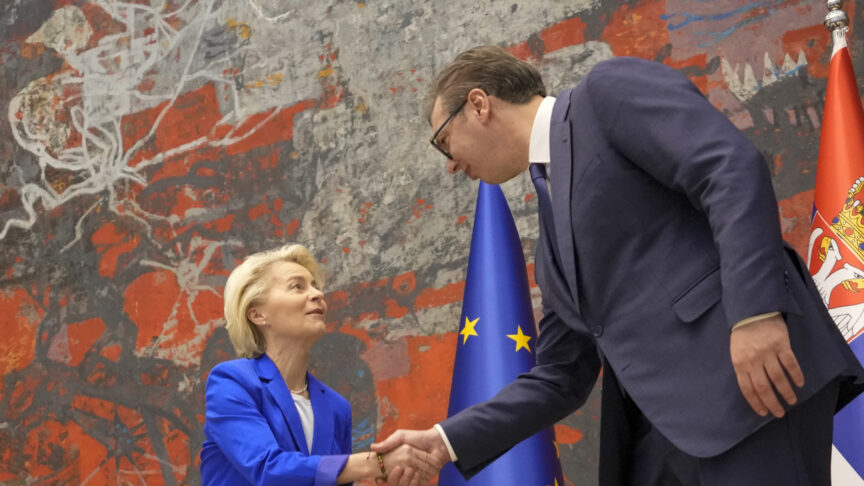Deterrence starts in the Balkans: How NATO allies can prevent military escalation in Bosnia and Herzegovina
While the European Union and the United States are busy finding a compromise for Ukraine’s NATO membership, Milorad Dodik, the president of the Republika Srpska entity in Bosnia and Herzegovina and Vladimir Putin’s key ally in Europe, is launching an attack on the sovereignty and territorial integrity of Bosnia and Herzegovina. Dodik has carried out a coup against Bosnia’s constitutional court – the highest authority for interpreting and enforcing the Dayton Peace Agreement, which ended the Bosnian war in 1995. He has signed into force legislation that makes decisions by the court not applicable in Republika Srpska, threatened a referendum on secession from Bosnia, and called for EU and NATO soldiers to be stationed on the inter-entity boundary to prevent conflict.
An allied response
NATO allies have put Bosnia on the agenda for the Vilnius summit as one of three “vulnerable states” alongside Moldova and Georgia. But to stop a Transnistria scenario emerging in Bosnia, they need to urgently increase the costs of escalation for Dodik:
- Following the meeting in Vilnius, the Quint foreign ministers should make it clear that the court’s mandate, with its current form and membership, including the European judges is non-negotiable.
- Beyond what they have done so far, the EU and member states should be ready to block all EU funding to Dodik’s government – which is struggling financially with accumulated debts – and make any disbursements conditional on respect of the Dayton agreement.
- The EU and the US should threaten Dodik with more international scrutiny over illicit finance, corruption, and nepotism in Republika Srpska. The US Treasury should press its European counterparts, particularly Austria and Cyprus, to investigate the illicit funding connected to Dodik’s business networks. Austria’s Raiffeisen bank can play a significant role here, given its dominant role in the region’s banking market.
- The EU should consider extending the mandate of the EU public prosecutor’s office to Bosnia as part of the accession talks.
- The US should press Dodik’s ally Hungary, but also Poland and Croatia, to support EU sanctions against Dodik.
- The EU should beef up EUFOR’s presence in Bosnia with additional troops, including from the United Kingdom, to deter any attempts at secession. NATO should signal its readiness to take over from EUFOR if Russia blocks the renewal of the EU-Althea mission at the UN Security Council in November.
What Dodik wants
- In the short term, Dodik’s escalation aims to force a reversal of the court’s ruling that agricultural land belongs to the central government.
- More importantly, Dodik aims to dismantle the last remaining international checks and balances protecting Bosnia and Herzegovina’s sovereignty, including the international judges at the constitutional court, whose votes can overrule anti-Dayton moves.
- Once he has dismantled international oversight, Dodik could use the court to pick apart the rest of the Bosnian state, challenging the constitutionality of institutions such as the army, judiciary, and the state court.
The US and the EU need to act now with a diplomatic strategy that will change Dodik’s cost-benefit calculations to avoid this political problem becoming a military problem down the road. Failing to protect tiny Bosnia from a Kremlin-backed coup would damage the credibility of NATO’s deterrent in Ukraine.
The European Council on Foreign Relations does not take collective positions. ECFR publications only represent the views of their individual authors.



